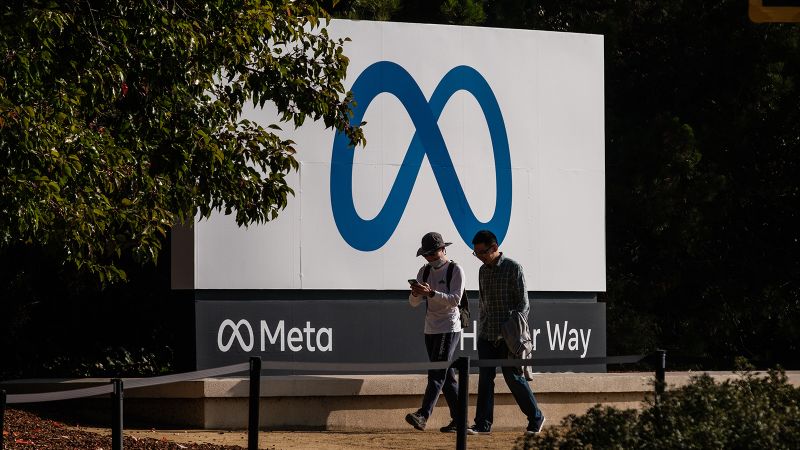
Fact Check Analysis: Trump Signs Settlement Agreement with Meta
This fact-check request was submitted by one of our subscribers, a feature we offer to provide clarity on questionable information. If you spot news stories you find dubious, submit them for our review, and we’ll investigate and publish the findings.
Is This Story Accurate? Not Entirely.
The CNN article, “Trump Signs Settlement Agreement with Meta, Source Says”, contains notable gaps in context as well as potential exaggerations. While it does convey some accurate points regarding the lawsuit settlement, it presumes readers will not question critical elements, leaving unanswered questions vital to understanding the story. This analysis will break down the article’s claims and evaluate their accuracy based on publicly accessible information and additional reporting.

Claim 1: $25 Million Settlement Paid by Meta to Trump
The article suggests that Meta is obligated to pay $25 million as part of the settlement—$22 million slated for Trump’s presidential library and the remainder for attorneys’ fees and other plaintiffs. However, this figure comes from “a person familiar with the matter,” with no official confirmation from Meta or Trump’s camp. Without access to the formal settlement agreement or a corroborative source, it is unclear whether this amount or its allocations are accurate. Additionally, the lack of justification from Meta’s side (such as to avoid further litigation costs or reputational harm) leaves the claim needing more transparency.
Readers may rightly wonder: Is this figure accurate, and why would Meta agree to pay such a substantial sum? This remains unresolved within the article and should raise red flags for readers demanding clarity. If confirmed, further reporting should address Meta’s motivations explicitly.
Claim 2: Zuckerberg’s Relationship with Trump
The article claims that Zuckerberg has worked to “ingratiate” himself with Trump since his 2024 re-election. It mentions a $1 million donation to Trump’s inauguration and a private discussion about the lawsuit at Trump’s club in November. While these claims are intriguing, their credibility hinges on anonymous sourcing and circumstantial evidence. No official or documented proof of Zuckerberg’s alleged overtures is offered.
In addition, phrases like “worked to ingratiate himself” lean into editorialized language, suggesting bias. Although it’s possible that Zuckerberg sought to ease tensions given past threats from Trump, the article offers no concrete evidence, making this an exaggerated or speculative claim.

Claim 3: Meta’s Policy Changes Align with Trump’s Vision
The article states that Meta’s recent policy changes, such as scrapping DEI (Diversity, Equity, and Inclusion) programs and adjusting content moderation policies, are moves aligned with “Trump’s vision for American businesses.” While Meta has indeed announced these changes publicly, linking them directly to Trump without evidence is a stretch. Eliminating DEI programs and altering moderation systems could just as easily be attributed to broader political and cultural pressures. This framing feels speculative and biased when not substantiated.

Key Context Readers Should Know
The phrasing “sources say” appears repeatedly in the article. While journalists often rely on unnamed sources in high-profile stories, this can lead to questions about credibility. Without more transparency around who these sources are (e.g., “a senior Meta executive” or “a member of Trump’s legal team”), it’s hard for readers to fully trust the reported details. The lack of explicit confirmation from Meta or Trump raises further concerns about the article’s reliability.
Additionally, important context is missing that would likely interest readers. For instance:
— Why did Meta settle rather than continue litigating? Was the cost of prolonged litigation a factor, or were there reputational risks? This remains unanswered.
— The specific terms of the settlement, particularly any clauses Meta might have secured (e.g., liability protections, agreed concessions from Trump), are not referenced. This leaves a gap in understanding what Meta gained in return for this substantial payout.
Verdict: An Article with Partial Truths and Missing Context
The CNN article raises critical issues but delivers incomplete information, leaning on anonymous sourcing and unverified claims to drive its narrative. While the settlement and some policy details have been corroborated by other outlets, the motivations behind these events and the full terms of the agreement remain opaque.
For readers seeking clarity on major news topics, using tools like DBUNK can save hours of research and cut through sensationalist reporting. Together, we can combat misinformation and hold news organizations accountable for delivering accurate, unbiased coverage.

